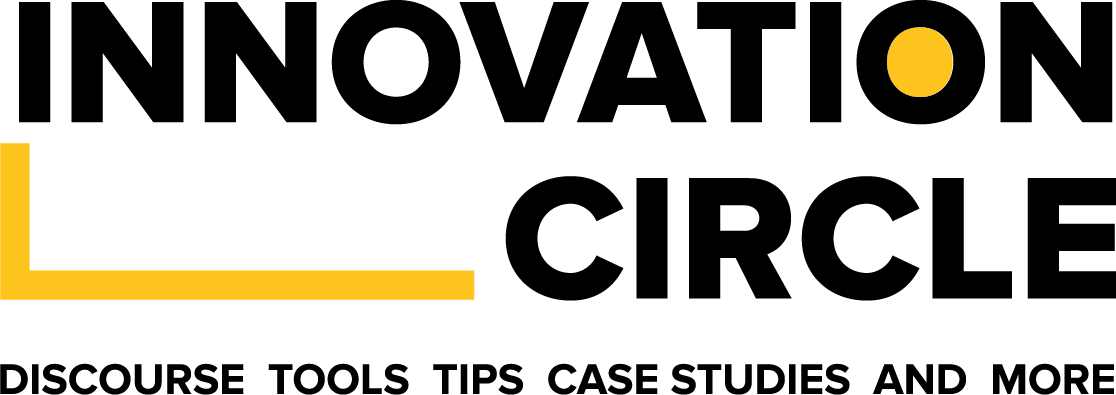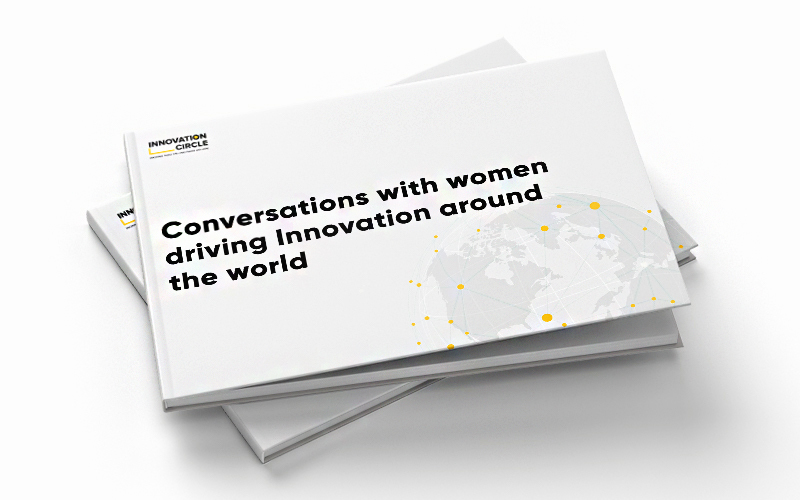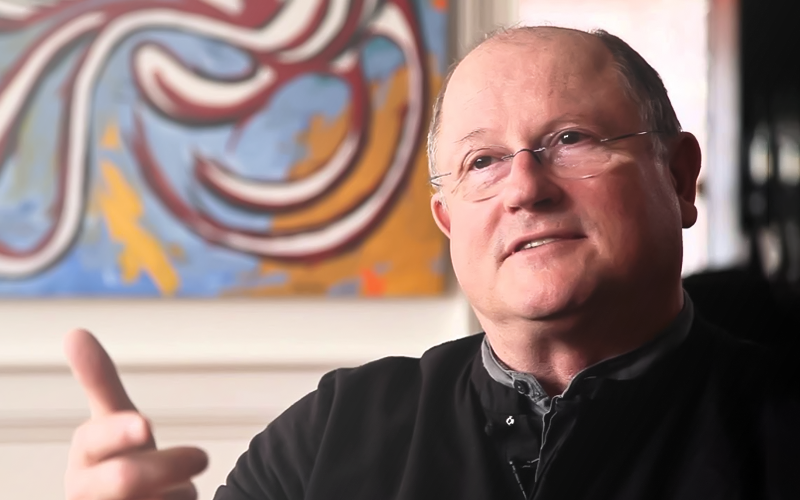
A Conversation with Gbolahan Fagbure, CEO of Supermart.ng
“When I think about innovation, I see it as thinking of new ways of doing things, trying to enhance processes, being more efficient and effective.”
Tell us a little bit about your journey to this current position as Co-founder and CEO of Supermart.ng, what led you on to this path?
My journey in E-commerce & technology started with Jumia in 2012, prior to Jumia I had worked in the banking industry for 5 years. At Jumia, I was the Chief Operating Officer for the first 2 years before I and my co-founder Rafael stepped aside to start Supermart, which we run now for the last 5 years. That’s the history in a nutshell.
So, what led you to this path? When Supermart came out it really was seen as an innovation because there was this need, and no one thought of it or put it together till you guys came on the scene. Can you share how that happened, how the idea came about and how you have built till now?
Well, when we were at Jumia, we realized that no one was doing groceries. I think there were a couple of smaller companies doing online grocery retail. Jumia wasn’t doing it and they hadn’t done it in any other markets anywhere else in the world.
We worked long hours and closed late, so this was a problem we had ourselves. When I had to go to the supermarket, it would be a pain finding parking, spending time in the store, and queuing. It just wasn’t something I wanted to do.
I guess I had also gotten used to online grocery retail while I lived abroad, so for me, it was something that was fairly straight forward. I thought to myself, ‘this is something that can work here locally, especially with all the traffic situation we have.
So we thought about all those things and said this is an area we can add value in, it’s probably one of the most difficult areas of e-commerce, but for us, over the years we’ve continued to learn, to innovate and continued to try new things. We are happy every time we have better service than in the previous months and year.
Looking at Nigeria’s current landscape, what are your thoughts on innovation in Nigeria today?
I think of innovation as new ways of doing things, trying to enhance processes, being more efficient and effective. In that regard, when I look at many companies we interact with, I think too many companies are too slow to try things, too many companies are still stuck in regimented ways of doing things.
“When I think about innovation, I see it as thinking of new ways of doing things, trying to enhance processes, being more efficient and effective. In that regard, when I look at many companies we interact with, I think too many companies are too slow to try things, too many companies are still stuck in regimented ways of doing things.”
For us at Supermart.ng, I can’t count the number of things we’ve tried over the years, we get an idea, we start it, we stop it [if it’s not working].
For example, recently we started selling groceries from the UK, we launched the service on Monday, but the idea came 3 or 4 weeks ago and literally 3 weeks later, we launched that new service.
Today, we have 2000 additional products from UK supermarkets. I can’t count many other things we have started over the years; some we’ve started, and we’ve stopped, some we’ve started, and we’ve carried on with us, but the most important thing is we have to be quick and nifty. I have discovered most companies are too just too slow and this is beyond technology or start-ups.
“I can’t count the many other things we have started over the years; some we’ve started, and we’ve stopped; some we’ve started, and we’ve carried on with us, but the most important thing is we have to be quick and nifty. I have discovered most companies are too just too slow and this is beyond technology or start-ups.”
What are your key responsibilities as CEO of Supermart.ng on a day to day basis?
I have about 10 reports that I review on a daily basis. Every morning I look at things like sales, performance reports on our marketing initiatives, operations report, customer service issues, and based on those reports I can react to specific things or think of a more holistic way of solving a long-term problem.
I start my day with those 10 reports and depending on the situation, for example with the UK project we just launched, I would be a lot more involved for the first 2-3 weeks, just making sure that things are working properly but once we have things settled, I take my foot off the paddle and look at something else.
So, it’s providing direction, guidance, making sure the various team leads are doing what they should be doing but again to me, it’s just about having a process that works. For instance, we have a lot of documented processes for almost all departments, even simple things like approving payments, there are certain things that we should see before a payment can be approved at various approval levels and if those approvals are not there, the payment will not be made. Right down to how we pick items, and how we deliver, what we say to customers. We have those processes identified, it’s only when there’s a deviation from those processes, that I now step in and ask questions.
All the guys I work with know that about me, I didn’t study marketing or operations, I’m not a programmer, but what I’ll always do, is ask questions. The guys know I will always ask those questions, so it comes, they must be ready for answers.
These questions come every day, I will always see things that can be changed or improved, or where someone has been out of line, and take into consideration how we fix them.
What would you say are factors that hinder innovation in your organization?
I think for me, it would be good to have more innovative thinking across the entire organization, from top to bottom. We’ve tried to create that kind of open environment where everyone can speak up. But I find out that sometimes even though you try to give that message, you find out that people still keep things to themselves. Sometimes, cause they’re not sure how it would be received, or they just feel, I’m just here to collect salaries, if ‘oga’ says to do it, do it fine, and if he doesn’t, then ‘oh well’.
We can do more to get more people coming up with ideas and suggestions. One thing we came up with, about a month ago was remote working. I thought to myself, do we need to be in this central place called ‘office’ to do our jobs? And the answer was ‘no’.
I asked the team leads to go and figure out how we’d still manage the company and make sure everyone is still performing. What kind of reporting structure do we have? How do we ensure that people are still getting their jobs done? Are people still motivated to come into the office? Are they still disciplined to get out of bed at the same time and at work at a certain time? How do we communicate, is it Skype, WhatsApp, e-mails? So, I just left it with them and went on to do other things.
So, at the next town hall meeting, we had one of the junior guys in the company who said, ‘why don’t we consider doing remote work? Within a week, we agreed that we would start it, and for the last 4 weeks now, we’ve been doing 3 days away and 2 days in the office. We will continue that to the end of the year, at year-end we will review to see whether it’s been working well.
We’ll then ask, can we now do it on a full-time basis, and have more social activities that compensate for the physical time that we don’t spend with each other. We can have team lead meetings once a week for a few hours and at another time, we can have a social activity, say to go out for drinks or maybe go to the cinema, to build a level of camaraderie within the team.
So we will go with this experiment till the end of the year, then in January, we can decide whether we will continue or go back to working 5 days a week, or whether we’ll decide, ‘hey it’s working so well, let’s get rid of the office.’
How do you factor your users and customers as you push the envelope at your company?
For a long time, I think our tech team was just working on too many different things that were not properly articulated, in the last two months we decided to work on just 2 things:
- Things that bring operational efficiency
- Things that bring customers to the site and attract them to shop.
Which companies globally or in Nigeria do you admire for how they innovate or operate?
I don’t know if there’s any one company in particular but if you’ve read my book you probably know that I observe things a lot. It may be one person or one thing I learn from somebody else.
I don’t think there’s any particular company whose mode of operation ticks all the boxes for me.
Not too long ago, I used to run a monthly speaker series program, where I invited CEOs to come talk to young professionals. One of the guys that came, arrived maybe 45mins before the interview.
I said ‘wow you are really early’, he responded that he doesn’t like to waste time, if he wants to do anything he does it quickly. He says ‘yes’ quickly and he says ‘no’ quickly. That mind-set stayed with me up until now, and it’s how I run my personal life and business. I apply it to simple things, like when job candidates come for interviews, I always tell the HR Guy, ‘let them come in and go quickly. ‘Don’t have many people come in and wait, when you know you’ll interview them one after the other.
So that essence of speed of executing, not really wasting time on things is one of the key ethos by which we run the business.
We’ve had a lot of people who have joined the team and left to what I guess we would call ‘bigger companies’, say that they really learned entrepreneurship and business at Supermart, because yes bigger companies are good, but the speed in which things are done and the level of detail in how they are done is completely different to the way they’re done in those bigger organizations.
You gave a lot of advice in your book, ‘Working on a Dream: Lessons in life and business’, what advice would you give professionals who want to grow in areas of business strategy and innovation?
Read my book (LOL). We are always learning, I guess nobody has all the answers, as long we have an open mind to learn as we talk to people. But I think more important than learning is implementing. We like to listen, we listen with one ear and it comes out from the other ear, we don’t actually practice all the things we talk about.
Some big companies are just too slow in their mode of operation, many of these guys have gone to the top business schools both locally and abroad. I am sure they have learned about building proper structures, you don’t need to wait for the MD to be physically in the office to make a payment or to decide if we are doing a, b, c, d or e.
There’s this one company we went to recently where they actually wanted to pass a memo to the MD, I thought to myself, ‘using the MEMO just shows that there’s something wrong here.’
What #innovationmoment are you most proud of at Supermart.ng?
There are so many things we’ve done so it’s hard to keep track.
I guess probably the most recent one is around remote working. Before we started, a couple of people I spoke to said it’s not going to work, you are wasting your time, guys won’t be committed, they would be doing other things.
But we found people are actually working and even I, I find that I’m working more hours than when I go to the office and that didn’t require any significant change from us. All the tools were well placed to start this. Yes, there are a couple of areas and 1 or 2 people who are not quite keeping up, but I think by and large we are happy with the progress.
It makes it lighter, a lot more efficient, just a better work-life balance so that people who were spending 4-5 hours in traffic daily, that’s now gone.



